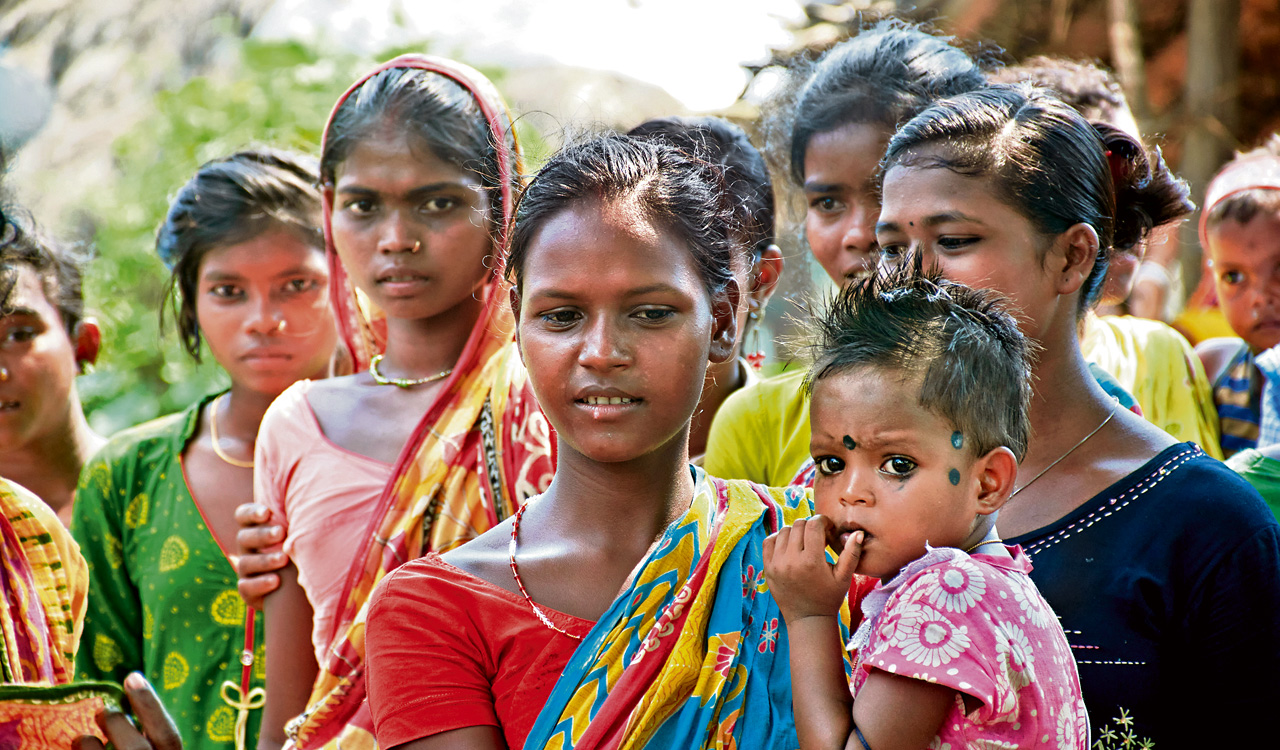Published: Published Date – 12:45 AM, Tue – 30 August 22

By Nayakara Veeresha
On 2 August 2022, a two-judge bench of the Supreme Court delivered its verdict in the case of Satyajit Kumar & Ors vs the State of Jharkhand & Ors (2022). The bench opined that 100% reservation to the local Adivasis is found to be violative of Articles 13(2), 15, 16(3) and 35(a-i) in addition to Articles 14 and 16(4) of the Constitution.
In the same case earlier, the Jharkhand High Court in September 2020 heavily relied upon the Apex Court’s judgement in the case of Chebrolu Leela Prasad Rao vs the State of Andhra Pradesh (2020) to invalidate the 100% reservation to the local Adivasis. The main issue dealt with in both these cases is the constitutional validity of the 100% reservations provided to the Scheduled Tribe candidates (STs) for the post of teachers in the schools of scheduled areas under the Fifth Schedule of the Constitution.
This verdict opens up the floodgate for the States in Fifth Schedule to relook at the socio-economic initiatives that were aimed at the uplift of the Adivasis from marginalisation in all walks of life.
In the Chebrolu Leela Prasad Rao vs the State of Andhra Pradesh (2020), the Apex Court observed that “providing for 100 per cent reservation is not permissible and it is violative of Articles 14 and 16(4) of the Constitution of India”.
Procedural Vs Substantive Equality
The Apex Court in both these verdicts has stopped at the formal or procedural equality only to deny the benefits of substantive equality and distributive justice. The court’s conclusion that providing 100% reservation to the local Adivasis in certain employment opportunities by the Governor’s order violates Articles 14 and 16 is illogical, as the reasoning for this assertion is made on the grounds of looking only through the prism of formal rather than substantive equality. The founders of the Constitution envisaged the attainment of substantive equality through formal equality as only an enabling but not an exclusive condition.
The achievement of substantive equality requires State action as part of the Directive Principles of State Policy in Part IV of the Constitution. In this way, the fundamental rights in Part III remain only on paper in the absence of the State’s conscious efforts to implement the same. Any discussion with regard to the fundamental rights of the citizens, in general, and the rights of marginalised sections of society, in particular, must involve the role of the State in the context of Article 46.
The top court has erred in both verdicts by looking at Part III of the Constitution as standalone, thereby reducing the role of the State and subsequently diluting the significance of the Fifth Schedule and the vision of social justice accorded to it.
It was observed in Mohini Jain (Miss) vs. State of Karnataka that:
“The directive principles which are fundamental in the governance of the country cannot be isolated from the fundamental rights guaranteed under Part III. These principles have to be read into fundamental rights. Both are supplementary to each other. The State is under the constitutional mandate to create conditions in which the fundamental rights guaranteed to individuals under Part III could be enjoyed by all”.
By upholding Articles 14 and 16 as the sole principles of equality, the court has deprived the Adivasis of their rights only to increase the probability of historical discrimination of Adivasis in the hands of non-Adivasis communities. In simple terms, both verdicts have done justice to the non-Adivasis communities at the expense of Adivasis rights in the Fifth Schedule.
Law or the rule of law (here principle of equality) is one of the means to dispense justice; if any law fails to provide justice to the minority population in a democracy, then it is bound to widen the gap between the majority and the minority population. The Supreme Court in the judgment of S Nagaraj and others v. State of Karnataka (1993) has ascertained that:
“Justice is a virtue which transcends all barriers. Neither the rules of procedure nor technicalities of law can stand in its way. The order of the Court should not be prejudicial to anyone. Rule of stare decisis is adhered for consistency but it is not as inflexible in Administrative Law as in Public Law. Even the law bends before justice”.
Erratic Classification
In the instant cases, the Apex Court and the judges have succeeded in applying the rules of procedure or technicalities of law (formal equality) only to deprive justice to the Adivasis communities in the field of education. Hence, the verdicts are judicial to the non-Adivasis and prejudicial to the Adivasis in this matter. In both cases, justice has been submerged in the ocean of laws rather than upholding it in the midst of certain legal provisions in special if not extraordinary circumstances or conditions.
In many paragraphs, the verdict refers to Adivasis as “they” only to highlight the imposed binary classification of “us” and “they” which is factually incorrect and legally untenable in the context of the Constitution. Such dominant and erratic classification or even description by the highest judiciary is unacceptable as the categorisation has the potential to deepen the further marginalisation of the Adivasis or other backward sections of the people at large in society.
The top court has been successful in reaching procedural equality purely in terms of legality and the same is construed as political equality also. The bone of contention is that the special provisions of the Constitution, especially the reservation to SC/STs in the spheres of education and employment, are meant to achieve social, economic and cultural equality in addition to legal or political equality. The court appears to have missed these socio-economic and cultural dimensions in general, and the sufferings and humiliation of the Adivasis, in particular, both in the pre and post-colonial times.
A skewed understanding of the Fifth Schedule, coupled with seeing and perceiving the Adivasi culture only through the binary lens of “they” (Adivasis) and “us or we” (mainstream) is antithetical to the Constitutional vision of social justice and civilisational values. The principle of equality is a necessary condition, yet it is insufficient to achieve the end goal of social justice. By settling the case at the juncture of equality based on the principle of exclusion or deprivation of equal opportunities to the non-Adivasis, the court in both the verdicts has grossly traversed back in advancing the social justice to the Adivasis.
(The author is PhD Fellow, Centre for Political Institutions, Governance and Development of Institute for Social and Economic Change [ISEC], Bengaluru. Views are personal)

